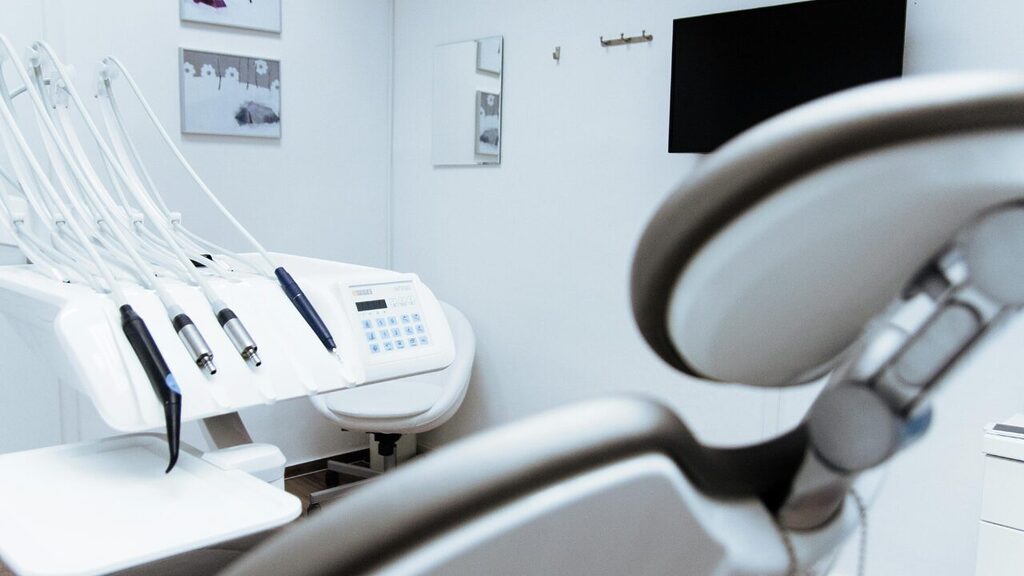Drug abuse takes a devastating toll on overall health, and its effects on oral health are particularly severe and often overlooked. At Texas Recovery Centers, we recognize the importance of addressing these issues as part of a comprehensive approach to addiction treatment.
The Oral Health Consequences of Specific Substances
Methamphetamine and “Meth Mouth”
Methamphetamine use leads to a condition colloquially known as “meth mouth.” This severe form of tooth decay and gum disease is characterized by:
- Rampant tooth decay, often blackened or rotting teeth
- Broken or missing teeth
- Inflamed or receding gums
- Chronic dry mouth
The acidic nature of methamphetamine, combined with the drug’s tendency to cause severe dry mouth and teeth grinding, creates a perfect storm for rapid dental deterioration.
Cocaine and Oral Health
Cocaine use can lead to:
- Erosion of tooth enamel due to the drug’s acidic properties
- Gum disease and recession
- Increased risk of oral infections
- Perforation of the palate (when snorted)
Marijuana’s Impact
While often perceived as less harmful, marijuana use can still negatively affect oral health:
- Increased risk of periodontal disease
- Higher incidence of oral cancers (when smoked)
- Dry mouth, leading to increased cavity risk
Opioids and Oral Health
Opioid addiction often results in:
- Severe dry mouth, increasing cavity risk
- Compromised immune system, leading to more oral infections
- Poor nutrition, affecting overall oral health
Common Oral Health Issues Across Substances
Dry Mouth (Xerostomia)
Many drugs, including stimulants, opioids, and marijuana, can cause chronic dry mouth. This condition reduces saliva flow, which is crucial for:
- Neutralizing acids in the mouth
- Washing away food particles
- Remineralizing tooth enamel
Without adequate saliva, the risk of tooth decay and gum disease increases significantly.
Teeth Grinding (Bruxism)
Stimulant drugs often cause users to clench or grind their teeth, leading to:
- Worn down tooth enamel
- Chipped or cracked teeth
- Jaw pain and temporomandibular joint (TMJ) disorders
Increased Risk of Cavities
Drug use often leads to increased cavity risk due to:
- Poor oral hygiene habits
- Dry mouth
- Consumption of sugary foods and drinks to combat dry mouth
Gum Disease
Substance abuse can accelerate the progression of gum disease by:
- Reducing blood flow to the gums
- Compromising the immune system
- Neglecting oral hygiene
Oral Infections
Drug use, especially intravenous drug use, increases the risk of oral infections, including:
- Bacterial infections of the gums and teeth
- Fungal infections like oral thrush
- Viral infections such as herpes simplex virus (HSV)

Indirect Effects of Drug Abuse on Oral Health
Poor Nutrition
Substance abuse often leads to poor nutrition, which can result in:
- Vitamin deficiencies affecting gum health
- Weakened tooth enamel
- Reduced ability to fight off oral infections
Neglected Personal Hygiene
As addiction takes hold, individuals often neglect personal hygiene, including:
- Infrequent or improper brushing and flossing
- Missed dental check-ups and cleanings
- Ignoring early signs of dental problems
The Compounding Effect of Smoking
Many individuals struggling with drug addiction also smoke cigarettes, which further compromises oral health by:
- Increasing the risk of gum disease
- Slowing healing after dental procedures
- Elevating the risk of oral and throat cancers
- Staining teeth and causing bad breath
Challenges in Dental Treatment for Individuals with Substance Use Disorders
Treating dental issues in individuals with a history of drug abuse presents unique challenges:
- Pain management concerns, especially for those with opioid addiction
- Potential interactions between dental medications and substances
- Anxiety and fear of dental procedures, which may be heightened in recovery
- Financial barriers to accessing comprehensive dental care
The Role of Oral Health in Recovery
At Texas Recovery Centers, we recognize that improving oral health is an integral part of the recovery process:
- Enhanced self-esteem from improved appearance
- Reduced pain and discomfort, supporting overall well-being
- Improved nutrition through better oral function
- Sense of accomplishment in taking care of one’s health
Addressing Oral Health in Recovery
For individuals in recovery, taking steps to improve oral health is crucial:
- Schedule a comprehensive dental exam and cleaning
- Develop a consistent oral hygiene routine
- Address dry mouth through hydration and sugar-free gum
- Consume a balanced diet rich in vitamins and minerals
- Consider fluoride treatments to strengthen tooth enamel
- Attend regular dental check-ups
Texas Recovery Centers’ Approach to Oral Health
At Texas Recovery Centers, we incorporate oral health education and care into our comprehensive treatment programs:
- Nutritional counseling to support oral and overall health
- Referrals to dental professionals experienced in treating patients in recovery
- Incorporation of oral health topics in group therapy sessions on drug use
By addressing oral health as part of our holistic approach to addiction treatment, we help our clients rebuild not just their lives, but also their smiles and self-confidence.
Take the First Step Towards Recovery and Better Oral Health
Don’t let addiction continue to harm your oral and overall health. Contact Texas Recovery Centers today at 888-354-2194 to learn more about our comprehensive treatment programs that address all aspects of your well-being, including your oral health. Your journey to recovery and a healthier smile starts here.













